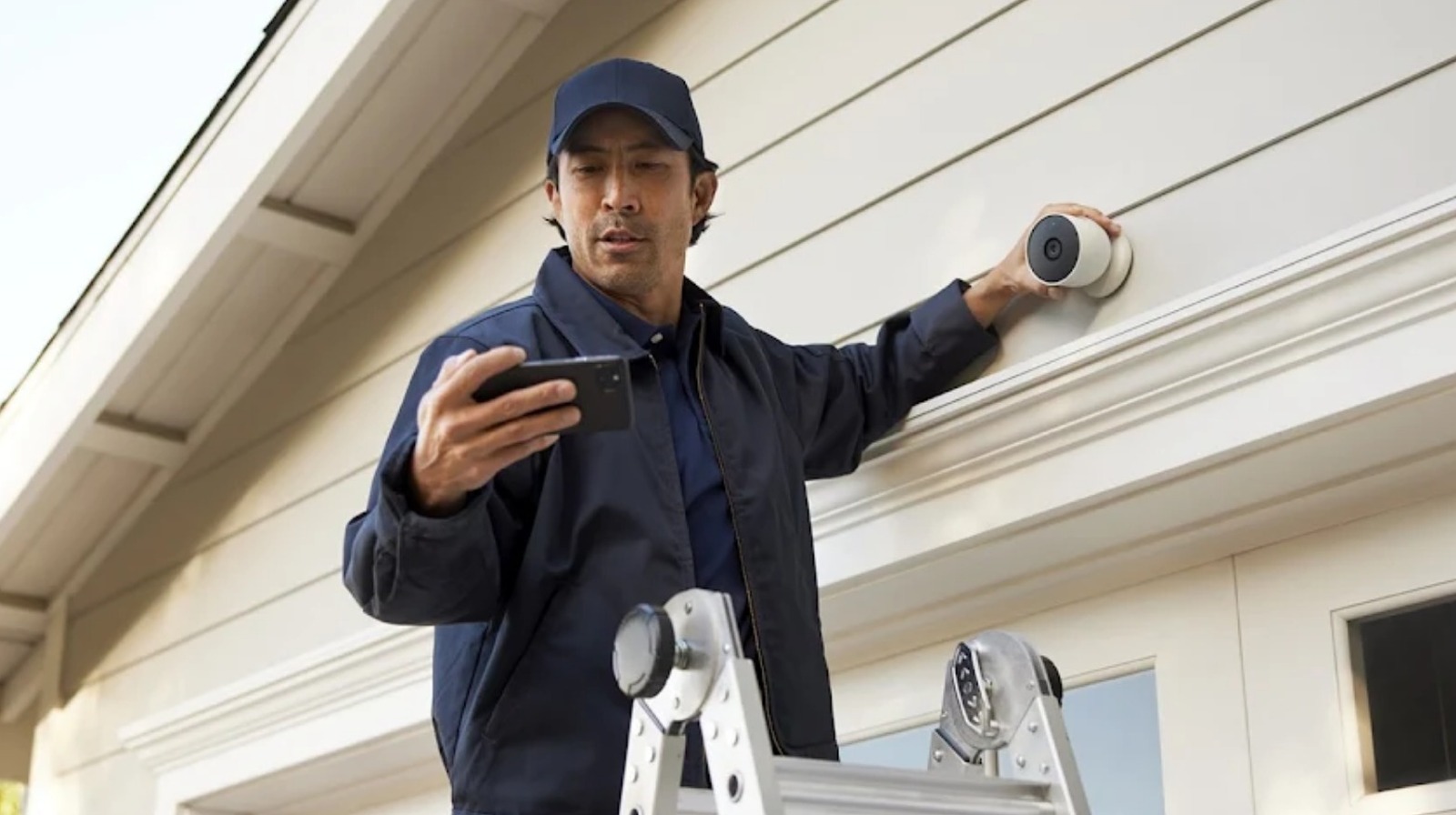Google Home has been one of the leading software platforms in the smart home game since it first launched. It is frequently ranked as one of the most effective platforms for networking and controlling smart devices. Google has produced several first-party speakers, doorbells, thermostats, Wi-Fi routers, and dozens of other devices that can all be integrated into this system, but few of them are more popular than the Nest home security cameras.
Advertisement
There are a lot of great third-party cameras that work with Google Home, but Nest is considered one of the best major home security brands on the market. One of the ways that Google has managed to keep its house brand at the forefront of the industry is by consistently ensuring that these cameras are kept up to date with the latest and greatest technology with regular updates.
Lately, Google has been pushing hard to integrate its artificial intelligence platform, Gemini, into every aspect of its ecosystem. Now it seems that the company is aiming to make its Nest cameras even smarter by adding Gemini to their software. Here’s how it’s going to work and what these changes mean for your smart home security system.
Advertisement
Google adds Gemini to home security
The Google Nest Team made an official announcement about this new update on the Google Community blog. They broke down the changes that they would be implementing and made some big declarations about how innovative these changes would be. “Gemini is bringing new capabilities to your cameras,” the announcement states. “Starting this week, they can move beyond just recognizing people, packages, and motion. They’ll actually start to understand what’s happening, like whether your dog is napping peacefully or digging up your prize-winning petunias.”
Advertisement
This sort of image identification technology is at the heart of visual machine learning, and so it’s unsurprising that Google has found several uses for it in Gemini’s integration into the Nest system. Being able to actively recognize, not only what’s on the screen, but also what kind of activity it’s performing will allow the Nest Cameras to tag noteworthy behavior and identify the camera’s owner. There are a couple of different ways that the Google Nest Team plans to implement these capabilities in the coming update.
AI descriptions, tagging, and search
One of the more impressive capabilities that the Google Nest Team is advertising is the cameras’ ability to recognize the objects and actions that it observes and then automatically generate detailed descriptions that it attaches to the video clips. This is something that you need to opt in for, so the Nest cameras won’t be able to do this automatically, but there are a lot of ways that it can be quite useful. For instance, these descriptions will create tag words identifying the people, things, and activities that are recorded. This will make it easy for you to find specific clips.
Advertisement
Google writes, “You can search your camera history using simple questions like, ‘Did the kids play in the backyard this afternoon?’ or ‘Was a delivery truck here today?'” The system will then search the AI-generated descriptions and their subsequent tag words, allowing your Nest to identify which of the clips contain things like “kids playing” or “a truck making a delivery,” so you can find what you’re looking for easily without having to scan through every clip of a car driving by or a bird setting off your camera’s motion sensor.
AI-powered automation
Google announced one other feature that isn’t specific to the Nest cameras, but that will affect the way you can use them. A new feature called “Help me create” allows Gemini’s AI to help set up the automations in your smart home. “Imagine creating automations in seconds that used to take minutes!” Google says. “We’re making it easier than ever to personalize your smart home experience.” To do this, you simply need to tell your Google Home what kind of automation you want to create and then Gemini will set up a routine on its own, saving you the time it would take to manually input times, dates, and settings through the app.
Advertisement
“Help me create” will work with all automation types associated with the Google Home platform-–including those involving home security. Google gives two examples of how this might work: “Remember to lock up at night” and “Make it seem like someone’s home.” These simple commands will be enough to let the Gemini AI know that it needs to make a routine for these automations in your home security-related smart devices. These kinds of commands can apply to the cameras as well. You can have Gemini set up a routine to arm and disarm them at different times of the day, or to set up alerts for when the cameras pick up on a specific person, object, or activity.
